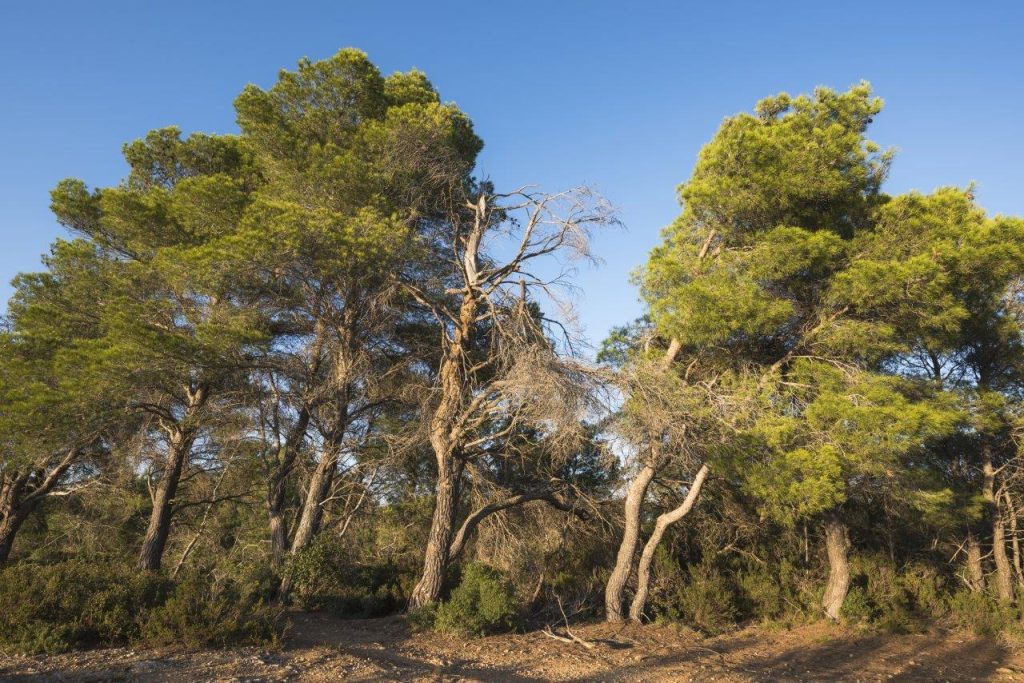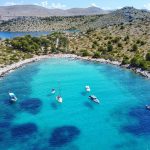The Croatian radiotelevision brings an interesting story, covered by many other media in Croatia, on what might be the causes for the increased number and size of the fires each summer. Their story starts by telling what happened to Dražen Ševerdija, one land owner in the Vodice hinterland, who lost more than 1,300 vines in one location alone, plus numerous figs and olive trees in the fire that recently savaged his estate. The firefighters defended the houses, and the ones they weren’t able to save were near the areas where the Aleppo pine fires broke out. It was impossible to save those.
A retired agronomist Davorin Pamić has been warning about the dangers of the Aleppo pines in Dalmatia for years. He is certain that the cause of the increasingly frequent fires in Dalmatia is the Aleppo pine. It was even planted by foresters under the motto that it, its roots, will keep the land and erosion will not occur. However, they seem to have overlooked some of its other negative aspects, which is that it is very easily flammable. It’s full of resin. And its cone, when it catches fire, can fly 50-60 meters like a bullet, and catch fire there, he says.
The flaming cone is what caused a fire in Milivoje Ševerdija’s barn when it flew in. The hay was set on fire and part of the herd was killed. The people still living off the farms in Dalmatia are also struggling to get any type of compensation for the damages done by the wildfires, as the bureaucracy is horrible and the compensations themselves end up being symbolic. All of that leads to fewer people continuing to work on the land after every fire.
Pamić brings some numbers to the table: In 1960, Dalmatia had a million sheep. And then when a fire broke out, 2.7 hectares would burn. In 1998, Dalmatia had only 200,000 sheep, but then 47 hectares burned in one fire. This means that we have five times less livestock, and 20 times more land is burning (note by the author: the numbers are certainly even worse 25 years later). And it will continue to be like that because there is no real prevention: no grazing, no people to look after the neglected surfaces.
The head Croatian fire chief said that, like Italy, we will have to introduce a tax on uncultivated land. And that’s fine. However, he does not know that 80 percent of the agricultural area in Dalmatia has an extremely unorganized ownership situation, such as it was when Austria-Hungary dissolved. Pamić says that his olive grove was last registered in the books in 1910, 1/22 of it, more than 100 years ago. Who will now, in 2022, get the tax slip or be held accountable?
The same questions have been asked for decades. The same answers always seem to appear, without application in practice. The only thing that changes is the weather – and for the worse, extreme droughts, extreme fires… the future will certainly bring more of them. Will we continue to welcome them unprepared?









